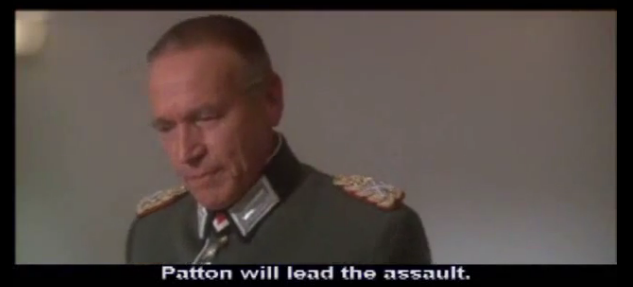
Posted on 03/10/2013 6:59:35 PM PDT by JerseyanExile
A Bridge Too Far is one of my favourite war movies. Pretty much the last of the Big Screen Epics, with an All Star Cast, it doesn’t try to do much except simply tell what happened. No romantic sub plots, no political commentary, it just goes all-out to bring us the story. There’s a scene near the beginning, where von Rundstedt and Model are discussing if they need to worry about stopping Patton or Montgomery.

“He’s their best. I’d prefer Montgomery, but Eisenhower isn’t that stupid” says von Rundstedt. The whole Monty/Patton argument in general is frequent, and shows up even in the Hatch forum (See the El Alamein thread).
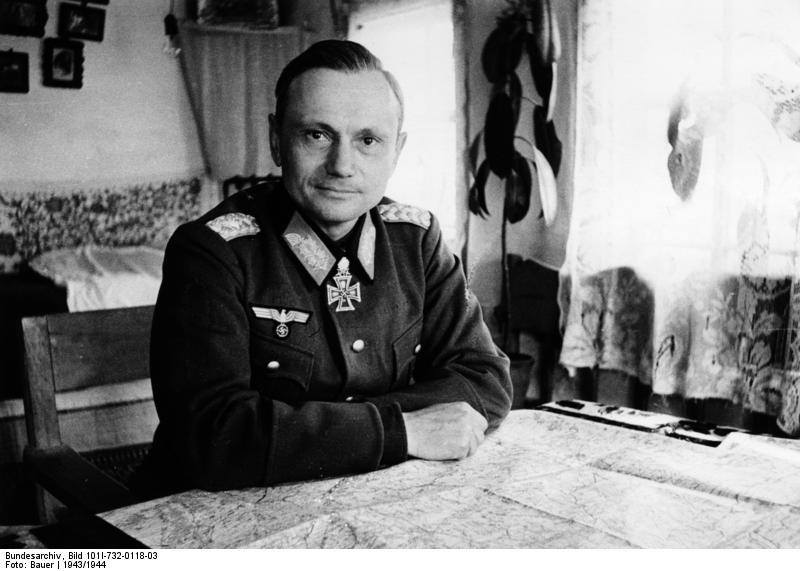
Now, this handsome fellow was a chap by the name of General der Panzertruppe Hermann Balck. By most accounts he was quite a competent chap, probably one of the best Panzergenerals the Germans had to offer. It is doubtful that many officers could have performed as he did in the Eastern Front. The Autumn of 1944 saw him in command of First Army, in central France. He had some issues to deal with. In a letter he wrote to von Rundstedt, he said “I have never been in command of such irregularly assembled and ill-equpped troops.” Certainly the German Army in October 1944 was not the same as it had been in 1941. His next sentence, however, bears some attention: “The fact that we have been able to straighten out the situation again and release the 3rd Panzergrenadier Division for the Northern front can only be attributed to the bad and hesitating command of the Americans and the French…” Later he said “Within my zone, the Americans never once exploited a success.” The unit facing him was US Third Army, the bad and hesitating commander he referred to turned out to be this fellow.

Yep, it’s George S. Patton Jr, the US’s best tank general of WWII. What’s going on?
When he was over to partake in Operation Think Tank, Harry Yeide gave me a copy of his new book, “Fighting Patton.” I love books like this. He completely ignores preconceptions, that which we know to be true simply because everybody knows it, and digs down to find the verifiable truth for himself. He said he was watching the movie “Patton”, and was intrigued by the German intelligence officer who kept the historical bio of the man. In this case, Yeide almost completely ignored the US writings, and instead went straight to the German war records and diaries of the people facing Patton to see what –they- were saying. It makes fascinating reading and throws a number of our preconceptions on their heads.

Now, I have somewhat mixed feelings about General Patton. The US Army has seen fit to name its museum of leadership after him, but while he may have been a great leader, I (please ignore the soap box under me) have something of a belief that his style of leadership belongs in a museum and there may be better role models for today’s young officers. The authoritarian style is something of an anathema to what I have seen work, but then, I work with 21st Century soldiers, not ones from 1940s. For current purposes, my opinion on this is irrelevant: What counts is what 1940s Patton did with his 1940s soldiers against 1940s Germans, Italians and French. Well, he led them to victory. What's interesting, though, is the perception of how he did it and of what people thought of him.
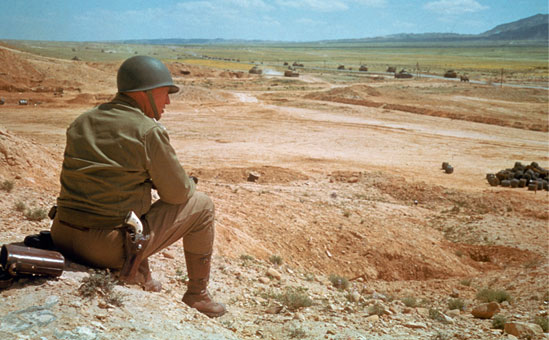
By and large in North Africa, the Germans not only had no clue who this Patton fellow was, they pretty much didn’t care anyway. The records show that their focus was Montgomery, the forces in the West facing the Americans basically had to work with whatever the Axis forces had to spare after taking Montgomery into account. Who the American commander was was somewhat irrelevant to them. Move to Sicily, and the great dash to Palermo didn’t impress the Germans either: They had voluntarily abandoned the territory. The reason why Montgomery was slow while Patton was able to loop around the island at high speed? The Germans had moved all available forces from the West to stop Montgomery, they didn’t care about the West of the island. After all, their escape route was to the East. And then they discovered, to somewhat their surprise, that the Allied advance was so hesitant that they were able to get most of their men and heavy equipment off the island, which they hadn’t thought would be possible when they started the Sicily defence. The name “Patton”, however, still didn’t seem to mean much to them.
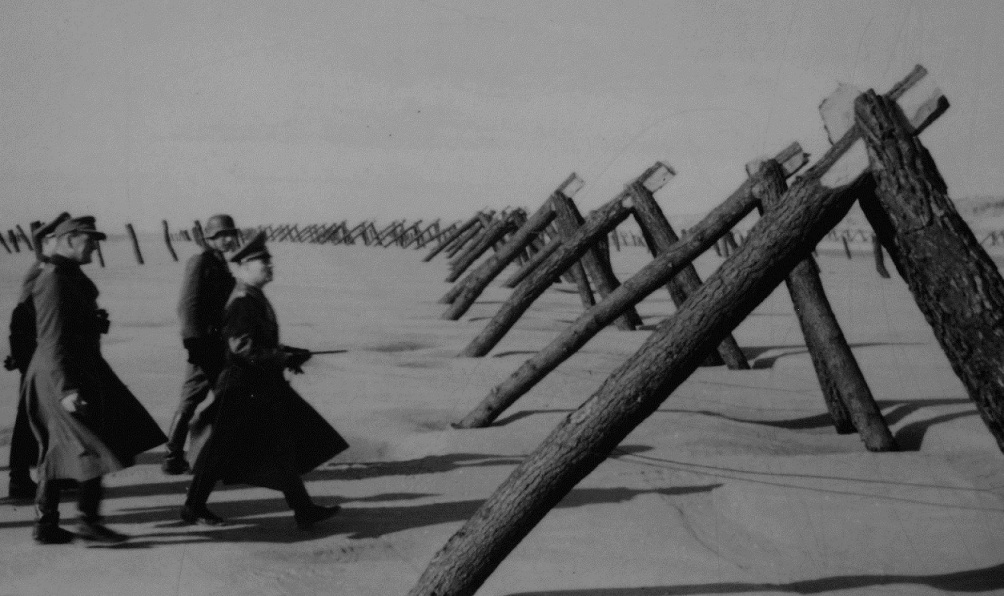
Ok, we move on. Patton is beached for a while, as we know, and then put in charge of FUSAG, the fictional unit supposed to invade the Pas de Calais. The common story is that the Germans were so in awe of Patton that they were convinced that wherever he was, that’s where the main invasion would be, and that may have been the intent. Problem seems to be that most German officers had never heard of the man at that point. Just because the US newspapers or General Eisenhower may have thought the Germans feared Patton doesn’t mean that the Germans felt the same way! That they were worried about FUSAG is pretty much a given, but they were worried about a supposed huge body of men and equipment. It could have been commanded by General Snuffy, as far as they cared. When he does move to the continent and takes over the US Third Army, the Germans had already decided to withdraw to the German border, and the race across France actually took about four weeks longer than the Germans had anticipated it would. And while they were doing it, the primary focus of the Germans was, again, Montgomery. Units facing Bradley (and thus Patton) generally had to make do with what was left over. There seems to have been no "Patton Panic" in the German Army.
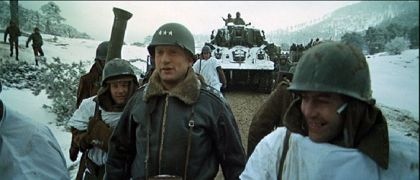
There’s a scene in “Patton” where the various allied officers are having a chat with Bradley about the German Ardennes offensive. Patton (George C Scott, of course) stuns the assembled men by announcing that he can have elements of his Army make a left turn and head for Bastogne in three days. All very impressive. German records for the planning of the Ardennes expedition indicate that they expected an attack from the South a little faster than that. And by the time Patton had actually gotten his forces to the fight, the German offensive was already considered a lost cause by the Germans. The commander of the forces which actually stopped the offensive? Field Marshal Bernard Law Montgomery overall, and General Courtney Hodges with his First Army in particular.
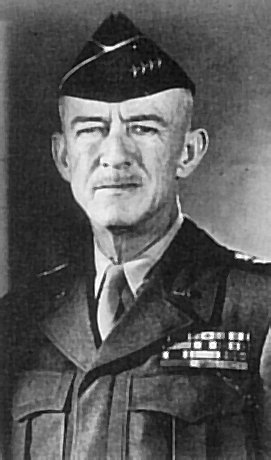
Now, I’m going to go off-track for a second here. Whatever the merits of Patton, Hodges is someone who probably deserved to have a movie of his own. He joined the Army as a private only three years before Patton commissioned as a lieutenant, yet was his equal under Bradley in the French campaign. His First Army undertook some of the most significant fighting of the Western front, but it seems that few people have even heard of him. If you get the opportunity, he might be worth a little personal research. To a large extent, this demonstrates the folly of the Monty/Patton argument: In France, Montgomery and Patton were not even competitors, except perhaps for press coverage. Montgomery’s counterpart was Omar Bradley, Patton’s counterparts as Army commanders were Hodges, Simpson, and Gerow. How many Patton/Hodges arguments are there on the Internet?
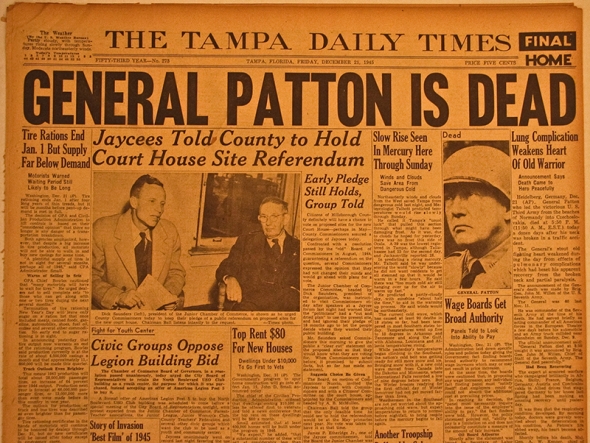
Now, I’m not saying that Patton didn’t have his good points. When he knew he was free to advance, he did so with a speed that few could, or would, match. His philosophy of offence above all else is matched by some of the most successful generals out there (although, granted, it worked for Custer as well during the US Civil War, and we know how that ended up afterwards), and he was a senior commander on the winning side so he must have had merit. “Fighting Patton” is a 500-page opus, almost 20% of which is supporting notes and references, and Yeide reports both the praise that the Germans gave Patton as well as their criticism. It really is worth the read. Fundamentally, Patton was the US Army’s best tank general in WWII in a field of… erm… Quick! Name a US ‘tank general’ in WWII other than Patton? And to crown off the mythology and seal his fame, he died tragically. That, colorful and competent, there’s little wonder he’s the US’s most famous general of the time, if not ‘ever.’ To the Germans, though, he was pretty much just another general, not anyone to take really significant note of.
The point of this all, though, is one which I try to make repeatedly. Take conventional wisdom with a grain of salt. For example, there’s nothing wrong with being slow and methodical as a commander when you can afford to be, a trait commonly associated with Montgomery. Which is fortunate, because that’s how a good number of German officers described their opposition, which turned out to be Patton. (“Hesitant “and “missing opportunities” was another common description, mind). And, of course, Patton never faced the ultimate test of conducting a fighting withdrawal. We know that Patton was a commander worthy of praise, the Germans credited him for it when they felt it was deserved. But Harry Yeide went further, took the initiative and effort to challenge the “US side of the US story” and look into the background, only to reinforce that the truth as we know it may not be the whole truth. Good for him, and may he continue.
No agenda. I decided that since this history-column series was petty interesting that perhaps I should begin posting them here weekly. I just finished reading an autobiography about Patton so I figured I’d start with this one.
This particular column is written by an Army officer who served in armor for 15-years, and who works at a tank museum. The "Chieftain's Hatch" contains a great deal of in-depth research on tanks and armored warfare in the first-half of the 20th century, especially on obscure topics. Making sense of naming conventions of American vehicles? Experimental light tank designs of the 1950s? Information on why the US Army stuck with inadequate 75mm guns on M4s far into the later part of the Second World War?All of that and more, often complete with original documents from government archives.
Okay, fair enough, and it is indeed intriguing. I don’t agree with this particular take...but enjoyed it nonetheless....
I doubt he would have had his planes lined up on the runway like McArthur did.
FWIW, after the war General Lee was asked which of the generals he faced was the toughest opponent.
His answer? McClellan.
I call bs. Monty was done in North Africa until he got our Shermans. When he did, he just frontally assaulted what was left of the Afrika Corps.
After D Day, Monty’s troops couldn’t keep up with the American advance either. Montgomery was a diva. As bad as MacArthur in the Pacific.
We went into France in June, 1944. By April, 1945 it was over. Less than a year. There was no hesitation on the part of the U. S. forces.
We could have all waited a few months and turned Germany into a sea of radioactive mud.
Did you ever stop to think that in WWII all choices were bad choices. Compound that with the fact that psychopathic killers are incapable of being good judges of others, and you had one terrible mess.
Yep. Anywhere, to the very gates of hell. That is what war is.
No one who has ever been there will tell you otherwise.
The world is not and will not be a peaceful place. Anyone who tells you otherwise is a liar.
War via drones may seem like a video game, but the point of impact is real. Holder’s comments under questioning by Ted Cruz this week was illuminating. The bastards would actually target US citizens who disagreed with them or threatened their power. No matter if it is constitutional or not. Evil vermin, yes they still very much exist.
There are so many things wrong with the statements of the author of the article, it is hard to know where to begin with the debunking. Suffice it to note the whole them amounts to no more than a heap of stinking revisionist crap the author should be ashamed of presenting to the public. Contrary to the outrageous falsehoods of the author, Patton was very well known to the German Wehrmacht. In addition to his debut role as the American tank commander in the First World War, German panzer tacticians such as Guderian studied Patton’s books and other information on tank warfare and integrated the information into their own tactics used in CASE YELLOW and later in the early part of the Second World War.
The author also wrongly assumes the German general must have been talking about Patton’s Third Army, instead of the Seventh Army.
Excellent...most excellent. Thank You.
The ageenda is appareent by the title of the Website: think Chieftan tanks.
Guderian used Patton’s prewar works about tank tactics to further develop his own blitzkrieg tank tactics.
Really?
The Germans called the Sherman tank "the Ronson", because one hit and it would blow up and catch fire.
The mechanics of the Sherman were very good. But the tank was underarmored and undergunned especially against heavier German equipment.
Arguably the best tank of WW-2 was the Russian T-34, which was diesel, heavier gunned, very fast and was the first to make use of sloped armor, which greatly improved protection.
BTW, the Russians found success against the Germans ~ you did know that, right?
It turns out 10 Shermans will generally take out one superior German tank.
Our tanks were not qualitatively successful, in particular, but they were wildly successful quantitatively.
As the saying goes, “Quantity has a quality of its own.”
“Arguably the best tank of WW-2 was the Russian T-34, which was diesel, heavier gunned, very fast and was the first to make use of sloped armor, which greatly improved protection.”
The Soviets didn’t seem to think so, because they used the Sherman tanks to equip their elite Guards Tank Divivions.
Like the Grant and Stuart tanks, huge successes [sarc].
Only until such time as their productive capacity improved to the point where the T-34's became primary. I saw a number of T-34's at the Ukrainian War Memorial in Kiev. They are the roughest looking thing going because they had to be built fast with no "finish" on them.
When the Russians finally turned the tide against the Germans, the T-34 was their lead. That is the tank that won at Kursk.
After the wet ammo storage system was introduced in the M4, the T-34 was actually MORE likely the burn than the Sherman. A Russian tankers who used both is the source of that statement.
Disclaimer: Opinions posted on Free Republic are those of the individual posters and do not necessarily represent the opinion of Free Republic or its management. All materials posted herein are protected by copyright law and the exemption for fair use of copyrighted works.